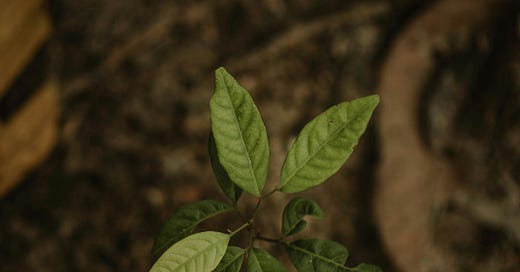On Charcoal
Recently, I wrote a piece for the Geeska platform on Somalia’s illegal charcoal industry. You can read the full piece here.

The problem of the unregulated charcoal industry in Somalia has roots dating back to the collapse of the country's central government. The collapse of the government and the subsequent civil war created a significant institutional and governance gap. Somalia's environment has become a casualty of that gap.
However, in an effort to curb the environmental crisis resulting from the industrial-scale charcoal production, the then transitional government banned charcoal production to combat the rampant deforestation devastating the country's fragile environment. Recognizing the significance of this move, the UN Security Council supported Somalia through various resolutions. For instance, Resolution 2036 explicitly banned the export and import of Somali charcoal, a measure that has been reinforced by subsequent resolutions.
Despite these concerted efforts, the illegal charcoal trade continues to flourish. It poses the most significant threat to Somalia’s environment. Dense forests are being decimated at an alarming rate, causing severe ecological damage. However, the environmental impact is only part of the story.
The charcoal trade has also evolved into a critical security issue. Local oligarchs and the militant group Al-Shabaab have exploited this opportunity to generate substantial income.
For Al-Shabaab, the profits from charcoal help fund their operations, perpetuating instability and violence in the country. This not only exacerbates the security situation but also undermines efforts to establish peace and stability in Somalia.
On the other hand, for local power brokers, the charcoal trade is a lucrative business that fuels corruption and hampers good governance.
Despite international bans and local laws, several factors contribute to the persistence of the illegal charcoal industry. Economic incentives play a significant role, as charcoal remains a vital source of income for many Somalis, including those in positions of power. The financial benefits often outweigh the risks associated with engaging in this illegal trade. Weak governance further compounds the issue, as the lack of strong governmental institutions makes it difficult to enforce laws and regulations effectively. Corruption and the influence of powerful local figures further complicate enforcement efforts. Additionally, militant groups like Al-Shabaab capitalize on the lack of governance to control and profit from the charcoal trade, using the proceeds to finance their terrorist activities.
On the issue of charcoal, there is much more to it than meets the eye. Read the full piece where I highlighted this.
Especial thanks to Geeska editorial team.




